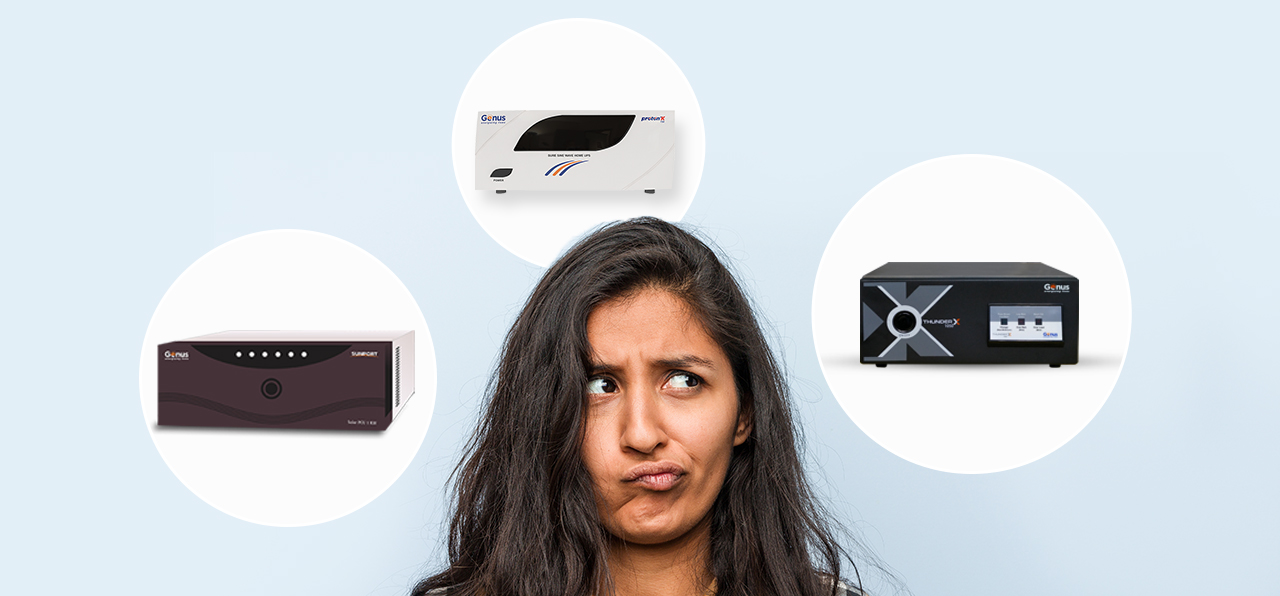
The best inverter brands are those that work reliably, provide a safe backup for your delicate appliances and, most importantly, do so in a cost-effective manner.
You might already be aware that inverters do not generate electricity. Though a diesel gen-set can do so, it essentially consumes energy from diesel to produce power. In case of an inverter, when the mains are on, it consumes grid power and stores electricity in batteries. This stored power is then delivered to your appliances, via the inverter, when the mains fail. So, please don’t compare your electricity bill, say, for April when there were no power outages with the bill for May when there were, and your inverter took over to run appliances. The bill for May will be higher, for two reasons:
- The inverter itself requires electricity to keep running
- There are conversion losses in the use of an inverter
Minimizing Conversion Losses
Now that you have understood that there is power consumed in providing a power back-up, here is a look at how to minimise conversion losses. Reduction in losses has a positive impact on your monthly bill. Let us understand the conversion processes briefly so that minimising losses is easy. This will help you appreciate the claims of brands like Genus when they say their inverters can minimise your electricity bill.
- The batteries can store electricity only in the form of direct current (DC) while the grid power is in the form of alternating current (AC). Your inverter first converts the AC to DC to charge the batteries and store energy (or power, or electricity).
- When mains fail, the inverter immediately converts this stored DC back to AC since your appliances can only run on AC.
What should a good inverter brand do?
AC to DC: The conversion loss here is reduced by using superior copper transformers compared to cheaper aluminum. Copper is a better conductor of electricity, though it is more expensive. The benefits gained however outweigh the costs in the long run. Genus’s Proton range uses this so that you can enjoy lower electricity consumption.
DC to AC: There can be a wide variation in efficiency here ranging from 40% to 95%. This is called the Power Factor. Put simply, it is the proportion of the overall voltage delivered that is in phase (in harmony) with the incoming power line. The more the harmony, the better your appliances run, the more is the efficiency and the lower are the bills (immediate, as well as in the long-term).
Technology: Go for the latest technology always, as nowadays, inverters have transformed from the square wave (fit for basic needs, but produce a humming sound) into a sine wave, using DSP technology for precise monitoring and control of performance. Select a brand like Genus.
Modified Sine Wave: Genus Thunder range is priced as the square wave but gives 90%effciency
Yes, that is the wonder of advanced technology. Genus uses Digital Signal Processing (DSP) chips to enable this. With the Thunder range, you can charge your laptop, mobile and run your microwave oven smoothly when there is a power cut. The other piece of good news is that it is compatible with different battery types like lead-acid and tubular.
Pure Sine Wave: Ideal for sophisticated appliances, offering 90-93%* efficiency
Go for Genus Proton Q or the latest Proton K if you need to run sensitive appliances. Pure sine wave means there would be no issues with your photocopier, laser printer you’re your computer screen won’t show lines of disturbance suddenly. This range can get charged even at low incoming voltage.
Finally, instead of buying a cheaper inverter offering 40% efficiency, it makes more sense to buy a Genus inverter that offers more than 90% efficiency, is equipped with the latest technology and reduces your utility bills significantly. They extend the life of sensitive appliances too.
